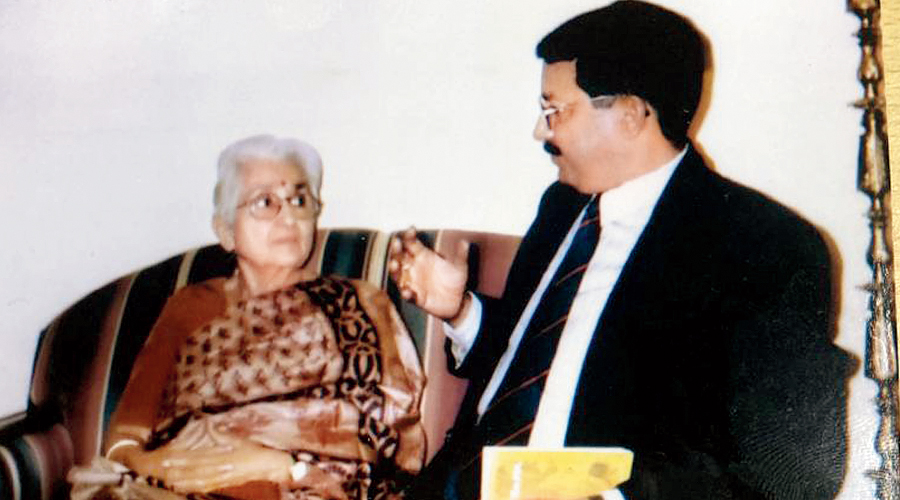Netaji Subhas Chandra Bose, whose 125th birth anniversary falls on Saturday, was an exceptional personality. To ensure the independence of his motherland from the clutches of the British, he sacrificed his whole life. Unfortunately, he could not see India as an independent nation; Netaji disappeared from the national scene at a climactic moment.
Yet, he is alive in the hearts of millions of Indians. Netaji’s spirit and ethos shall remain an ever-burning candle for the generations to come.
“Jai Hind”, coined by Netaji, became a national slogan, to commence any conversation, as a greeting and as a salutation to our Mother India. “Jai Hind” is being used by all ranks and files of the Indian Army for the past decade. The slogan has bound the army in a more positive and unique way.
Netaji has been one of my greatest heroes since childhood. My late mother was largely responsible for this. I consider myself extremely lucky to have been able to meet Colonel Lakshmi Sahgal, the commanding officer of the Rani of Jhansi Regiment of Netaji’s Indian National Army (INA).
I met her when she used to come to Calcutta every year for Netaji’s birth anniversary celebrations. Her stories on Netaji and the INA enthralled me. It was very kind of Colonel Sahgal to accept my invitation to visit our home and motivate my wife, daughter and son.
It was another honour for me to have met Netaji’s daughter, Anita Pfaff, when she visited Netaji Bhavan on January 23, 1995.
Netaji not only sacrificed his life for the country but also visualised ways of eradicating poverty, illiteracy and diseases. His most unique quality was that he could transcend all barriers of caste and creed. The INA had generals from the Hindu, Muslim, Sikh and other communities.
“Had Subhas been there, the partition would not have taken place,” Mahatma Gandhi had said.
On August 25, 1943, Netaji formally assumed supreme command of the INA. He said in a special order: “In the coming struggle for the liberation of our motherland, the Azad Hind Fauj has a vital role to play. To fulfil this role, we must weld ourselves into an army that will have one goal — freedom.”
On August 26 that year, the commander of the Japanese army revealed a major plan of operation in the Imphal area on the Indian border.
Netaji concentrated all efforts on the mobilisation of men and materials for the fight. A guerrilla regiment was raised. The elite regiment had the best soldiers and ammunition to spearhead the INA operation.
While Netaji was busy mobilising men and materials for the struggle, he received news of the Great Famine of Bengal. He made arrangements for 1 lakh tonnes of rice to be sent to Bengal. He urged the British government in India to permit the movement of the rice from Myanmar to India, but was spurned.
On October 21, 1943, a meeting of the delegates of Indians living in East Asia was held in Singapore. Here, Netaji announced the formation of a provisional government of “azad Hind (free India).
But with all leaders in prison and the common people disarmed, it was not possible to set up a provisional government within India or to launch an armed struggle, Netaji said.
“It is therefore the duty of the Indian Independence League in East Asia, supported by all patriotic Indians at home and abroad, to undertake this task — the task of setting up a provisional government of azad Hind and of conducting the last fight for the freedom with the help of the Azad Hind Fauj,” he said.
On November 5-6, 1943, at the Greater East Asia Conference in Tokyo, Netaji represented the provisional government as an observer. Here, Netaji persuaded the Japanese to transfer the Andaman and Nicobar Islands to the provisional government.
Netaji, like Deshbandhu Chittaranjan Das, had always fought for “poorna swaraj”, or complete freedom. Had Netaji prevailed, the tragic fallout of dominion status granted by the British, especially the communal massacre, could have been avoided.
Netaji and his vision for economic planning, national unity, women’s empowerment and poorna swaraj have left behind a fiery legend.
Pratapaditya Mazumdar is a Lieutenant Colonel (Retd)










